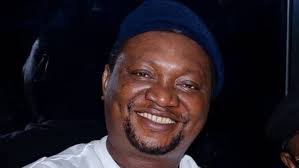‘Holy Roller’ game still resonates in NFL 4 decades later


OAKLAND, Calif. (AP) — It has happened almost every week in the NFL over the past four decades.
A player will fumble on fourth down or in the final two minutes of a half, a teammate will recover it and try to advance it — only to have the referee announce that by rule the ball returns to spot of the fumble.
The reason for that rule? A play known simply as the “Holy Roller.”
The stage was set in San Diego on Sept. 10, 1978, when the Raiders had the ball at the Chargers 14, trailing 20-14 with 10 seconds left. Ken Stabler dropped back to pass and was pressured by Chargers linebacker Woodrow Lowe.
With nowhere to throw the ball, Stabler either fumbled or pushed the ball forward on purpose, depending on which side of the rivalry is telling the story.
Teammate Pete Banaszak then knocked the ball further ahead from about the 13-yard line as it rolled toward the end zone. Tight end Dave Casper kicked the ball forward at the 5 and then fell on it in the end zone with no time remaining.
The officials immediately ruled touchdown, setting off a celebration for coach John Madden and the Raiders, and prompting the memorable radio call from Bill King.
“The Oakland Raiders have scored on the most zany, unbelievable, absolutely impossible dream of a play,” King said. “Madden is on the field, he wants to know if it’s real. They said, ‘Yes, get your big butt out of here.’ He does. There’s nothing real in the world anymore. This one will be relived, forever.”
And it has been as the “Holy Roller” in Oakland and the “Immaculate Deception” in San Diego as the Raiders won the game 21-20 on Errol Mann’s extra point.
The NFL changed the rules the following year, saying only the offensive player who fumbled the ball can advance it in the final two minutes of the game or overtime.
But under the rules in 1978, it was a legal touchdown as long as Stabler was determined to have fumbled rather than intentionally rolled the ball forward.
Referee Jerry Markbreit stands by the call.
“The ball was kicked, batted, muffed and I guess 30 yards later it wound up in the end zone and my wing guys signaled touchdown, and I turned and signaled touchdown. It didn’t seem like anything was wrong. Madden came running out onto the field. He couldn’t believe it, and somebody shooed him off the field,” Markbreit told ESPN years later in an oral history of the play.
“Of course, afterward in the locker room Stabler said he intentionally had fumbled the ball forward, which would have been an incompleted forward pass under the rule. … I have looked at that play a thousand times. He says he threw the ball forward; I say that he didn’t. But who cares after 40 years.”
Here’s a look at how that memorable game affected each team:
SAN DIEGO
The Chargers finished the season 9-7 and missed out on their first playoff berth since the 1970 merger because of that loss. The one bright spot might have been that the loss was part of a 1-3 start that led to Tommy Prothro resigning as coach. Don Coryell took over and helped implement one of the most exciting offenses in NFL history. The Chargers made the playoffs the next four seasons, but lost in the AFC title game to Oakland in 1980 and Cincinnati the following season.
They have never won a Super Bowl, losing their only appearance after the 1994 season to the 49ers.
OAKLAND
The Raiders also finished 9-7 and that win made sure Madden had a winning record in all 10 seasons as a head coach. Madden retired after the season and Tom Flores took over. He led the Raiders to Super Bowl titles in the 1980 and ’83 seasons.
The franchise is headed to Las Vegas next year after moving from Oakland to Los Angeles in 1982 and then back again in 1995.
MEMORABLE GAMES
Jan. 11, 1981. The teams met in the AFC title game two seasons later as the wild-card Raiders beat the Chargers 34-27. Oakland broke out to a quick 28-7 lead behind two touchdown passes from Jim Plunkett, a TD run by Plunkett, and a short run by Mark van Eeghen. San Diego rallied behind Dan Fouts’ second TD pass of the game and a touchdown run for Chuck Muncie before the Raiders held on for the win. Oakland followed that by winning the Super Bowl two weeks later against Philadelphia.
Oct. 11, 1998. This meeting was remembered most for its offensive ineptitude. The teams combined for 15 first downs, five turnovers and an NFL-record 27 punts. Starting QBs Ryan Leaf (7 for 18 for 78 yards and three INTs) and Donald Hollas (12 for 35 for 101 yards and one INT) were both benched. Oakland ended up winning 7-6 when Wade Wilson replaced Hollas and connected on a 68-yard TD pass to James Jett with 1:38 to play for his only completion in seven attempts.







